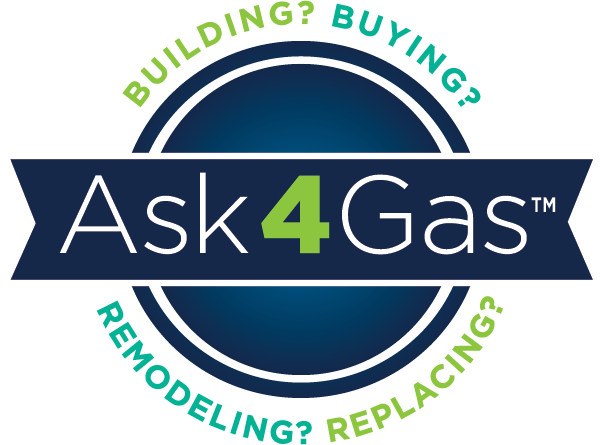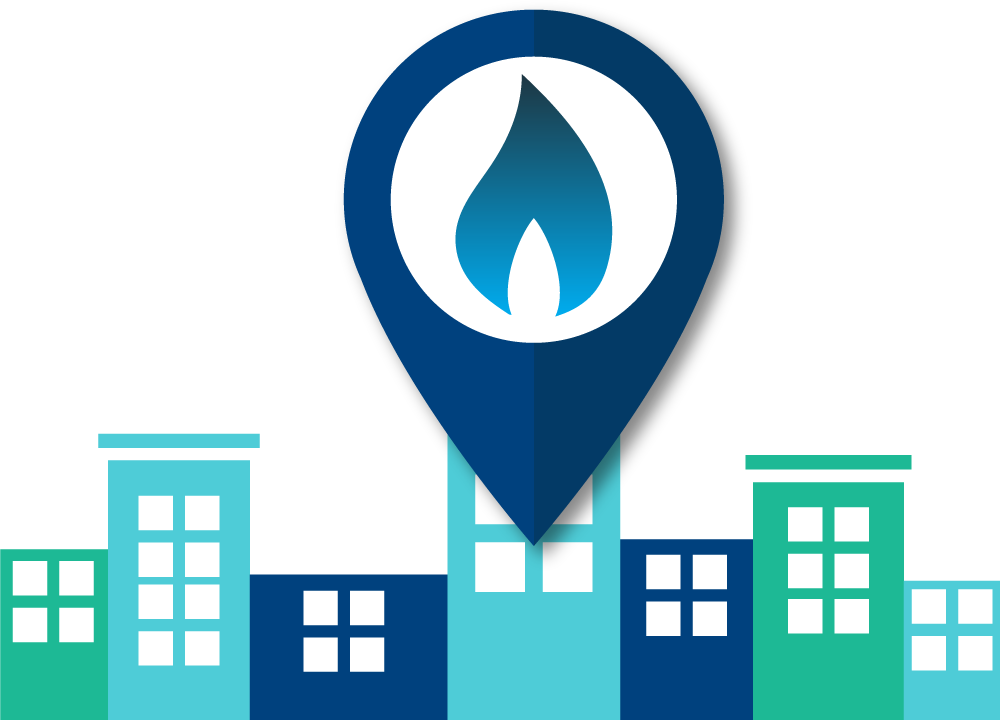-
How do I know where natural gas or propane gas mains are located?
Natural and propane gas pipelines are often identified by line markers (plastic or PVC posts) with the name and phone number of the pipeline operator and either the words “Warning”, “Caution” or “Danger” followed by the words “Gas Pipeline” in one inch letters. Many times gas pipelines are marked with yellow paint on roads, sidewalks and curbs to give an approximate location. When an excavation is planned, you may see small yellow flags and paint on the ground used for temporary marking to depict the approximate location of the pipelines.
-
What lines am I responsible for as a gas customer?
The Code of Federal Regulations, Part 192.16 Customer Notification, requires that gas utilities notify customers that the utility is responsible for all maintenance for all gas mains and services up to the outlet of the gas meter. All piping or fuel line after the outlet of the meter is the customer’s responsibility. If this piping or fuel line is buried and not maintained, may be susceptible to leaks or corrosion (rusting) and should be inspected periodically and repaired if any unsafe condition is discovered. These lines should also be located if any excavation is to occur nearby. Plumbing and heating contractors can assist with locating, inspecting and repairing the customer’s buried piping.
-
What should I do if I think I smell gas?
First leave the area. Do not operate any electric devices (light switches, garage door openers, telephones). Once safely away from the area you smelled gas, call FPU at 800 427-7712 and report the gas odor. If you sense a more serious issue, call 911 once safely away from the gas odor.
-
What should I do if I want to dig in my yard to plant or remove a tree or bush, excavate for construction or demolish something?
The law requires you or your contractor to call 811 to notify a One Call service of your plan to dig. The One Call service will in turn notify all utilities of the planned excavation and they will mark all facilities in the area of excavation. By knowing what is below, everyone is kept safe and costly and dangerous damage can be avoided. This service is free to excavators and homeowners.
-
Why does the gas smell so bad?
The Code of Federal Regulations, Part 192.625(a) Odorization of Gas, requires that a combustible gas in a distribution system line must contain a natural odorant or be odorized so that at a concentration in air of the one-fifth of the lower explosive limit, the gas is readily detectable by a person with a normal sense of smell. FPU adds a mercaptan odorant (rotten egg smell), that is non-toxic and non-hazardous, to the gas that is distributed through our gas systems.
Natural Gas Safety
Frequently Asked Questions
Gas Safety Survey - Have more questions?
Submit your question below and one of our Energy Experts will be in contact with you soon.
Electric Rebates For Home And Business
Upgrade to the latest high-efficiency appliances and equipment, conserve energy every month—and save money right from the start!
Explore RebatesInterested in Adding Natural Gas to Your Home?
Get $100s in natural gas rebates on gas cooktops, water heaters, dryers and other high quality natural gas products. Explore appliances and save today!
Explore Savings



